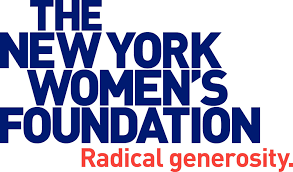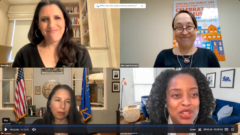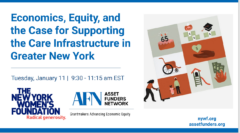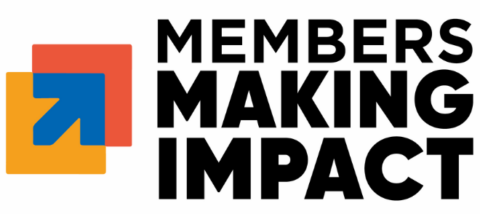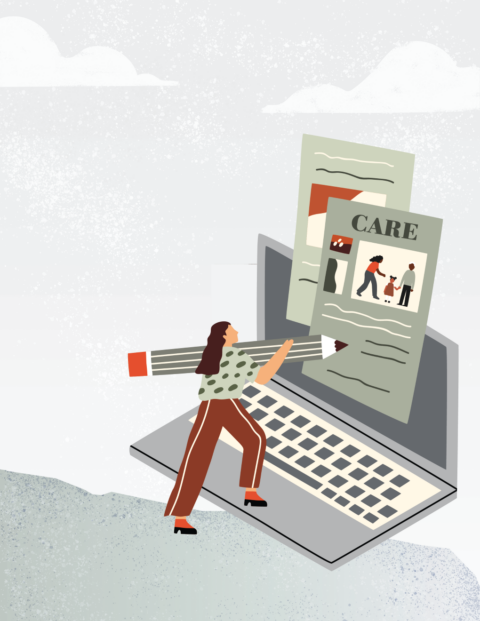COVID-19 has had devastating impacts on American workers, particularly women and people of color. Failure to adopt a solid caregiving infrastructure leaves families struggling financially and logistically with the burden of providing quality care for loved ones while juggling the day-to-day challenges of jobs and livelihood. Lack of common-sense protections such as universal paid leave, high quality affordable childcare, and wrap-around services harms women and workers. But caregiving isn’t merely a women’s issue, lack of quality care harms our economy. Building a better caregiving infrastructure will require us to unravel interlocking legacies of racism, sexism, ageism, and ableism that led us to undervalue those who give and receive care.
In June of 2021, Asset Funders Network released a national brief that detailed how care impacts economic recovery, family economic security, equity, and the well-being of children, older adults, and people with disabilities. The brief identifies the policies, priorities, and support coalitions needed to build a better care-giving infrastructure and how philanthropy can help.
On January 11, 2022, funders from the Greater New York area joined join AFN and the New York Women’s Foundation to check-in on how the caregiving infrastructure is changing and what opportunities exist for philanthropy to support better care.
Speakers:
Camille Emeagwali, Senior Vice President Programs and Strategic Learning, The New York Women’s Foundation
Julie Kashen, Director of Women’s Economic Justice and Senior Fellow, The Century Foundation
Dina Bakst, Co-Founder and Co-President, A Better Balance
Julia Jean-Francois, Co-Director, Center for Family Life
Together we discussed:
- How does the lack of childcare continue to exacerbate economic insecurity for Greater New York families and workers?
- What are the most effective local, regional, and national solutions? What are the critical emerging areas to have on our radar?
- What models are working best for certain sectors, including childcare and eldercare providers?
- What is the radical vision we want to see around caregiving and what role can funders play in advancing this vision?
- How is the narrative around caregiving shifting to tell a better story about why we need to value caregiving and caregivers?
- How do we connect to a small business lens, to support small businesses and workers?
- Specific call(s) to action
Resources
Why Care About Care?
AFN’s Care Economy Video
Opinion piece: “Home-based child care providers deserve better pay, working conditions and respect”
Fact sheet: “Child Care Shortages Weigh Heavily on Parents and Providers”
Policy Brief: “The Invisible Work of Family, Friend, and Neighbor Caregivers and Its Importance for Immigrant and Dual Language Learner Families”
The Urgent Need for Child Care Solutions
Unless Build Back Better Is Passed, Families Will Face Child Care Prices Rising
Building a High-Quality Child Care and Early Learning Infrastructure for New York City
ABB’s state by state workplace rights hub
Hosted in partnership with:
